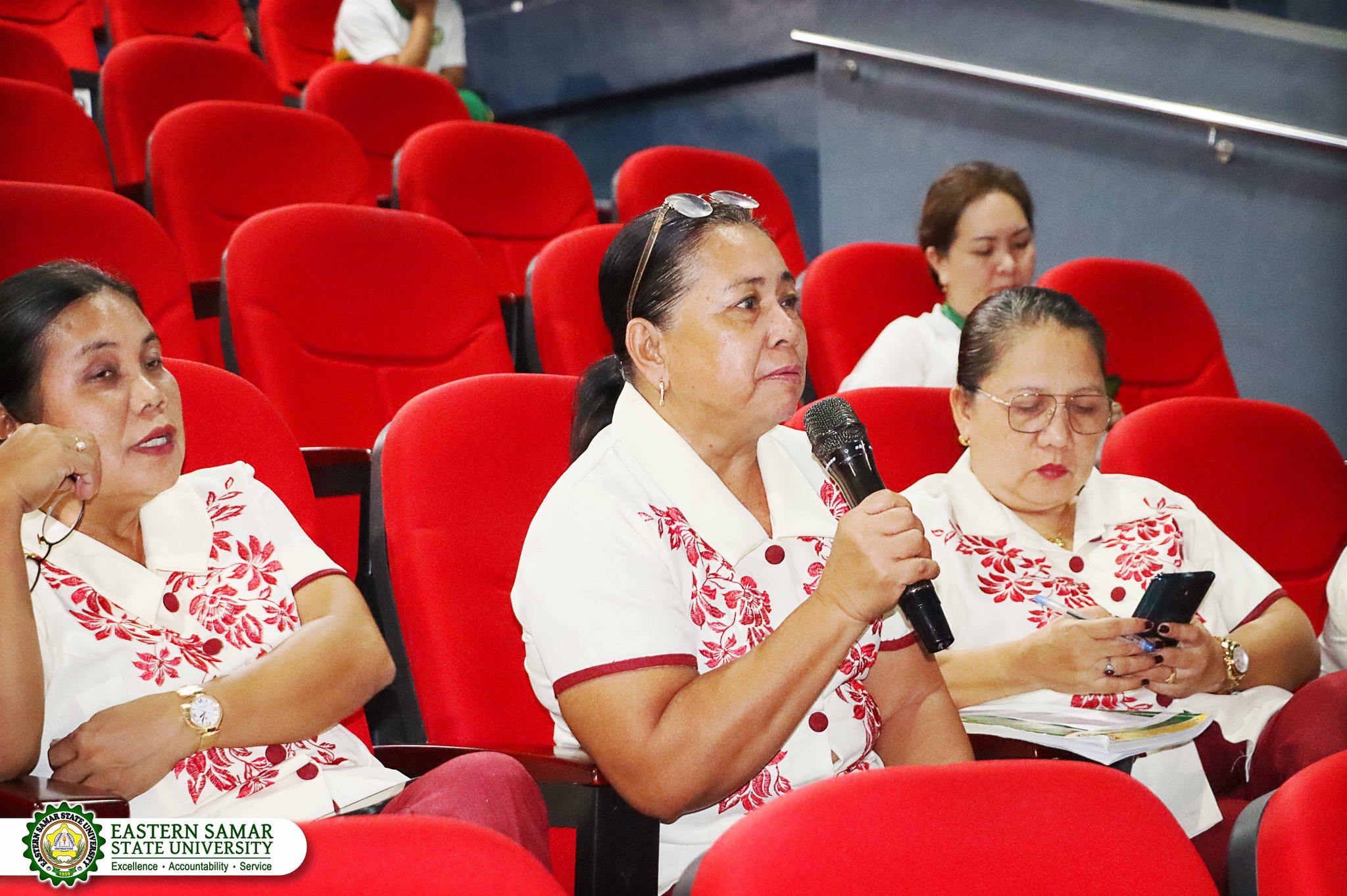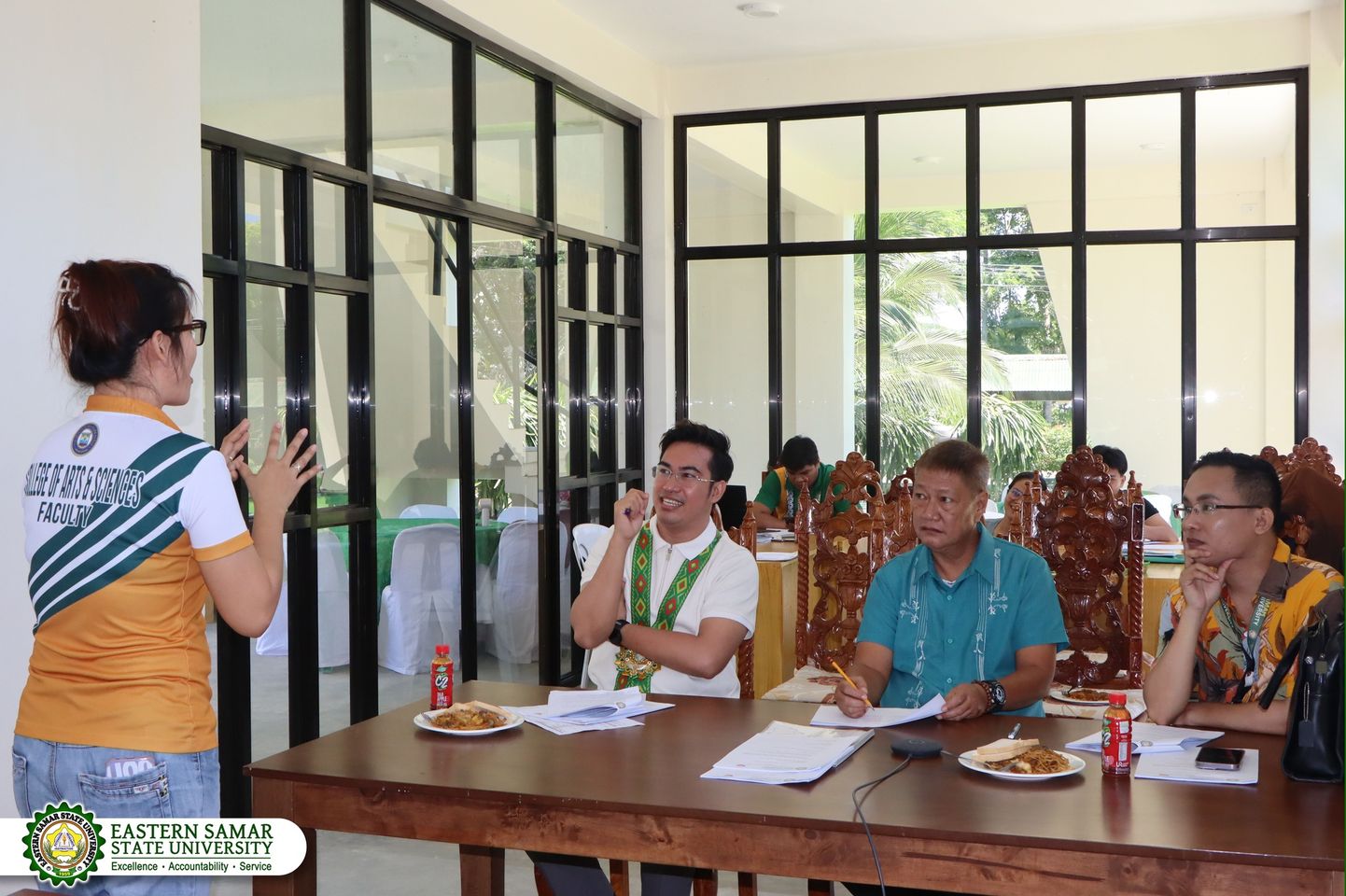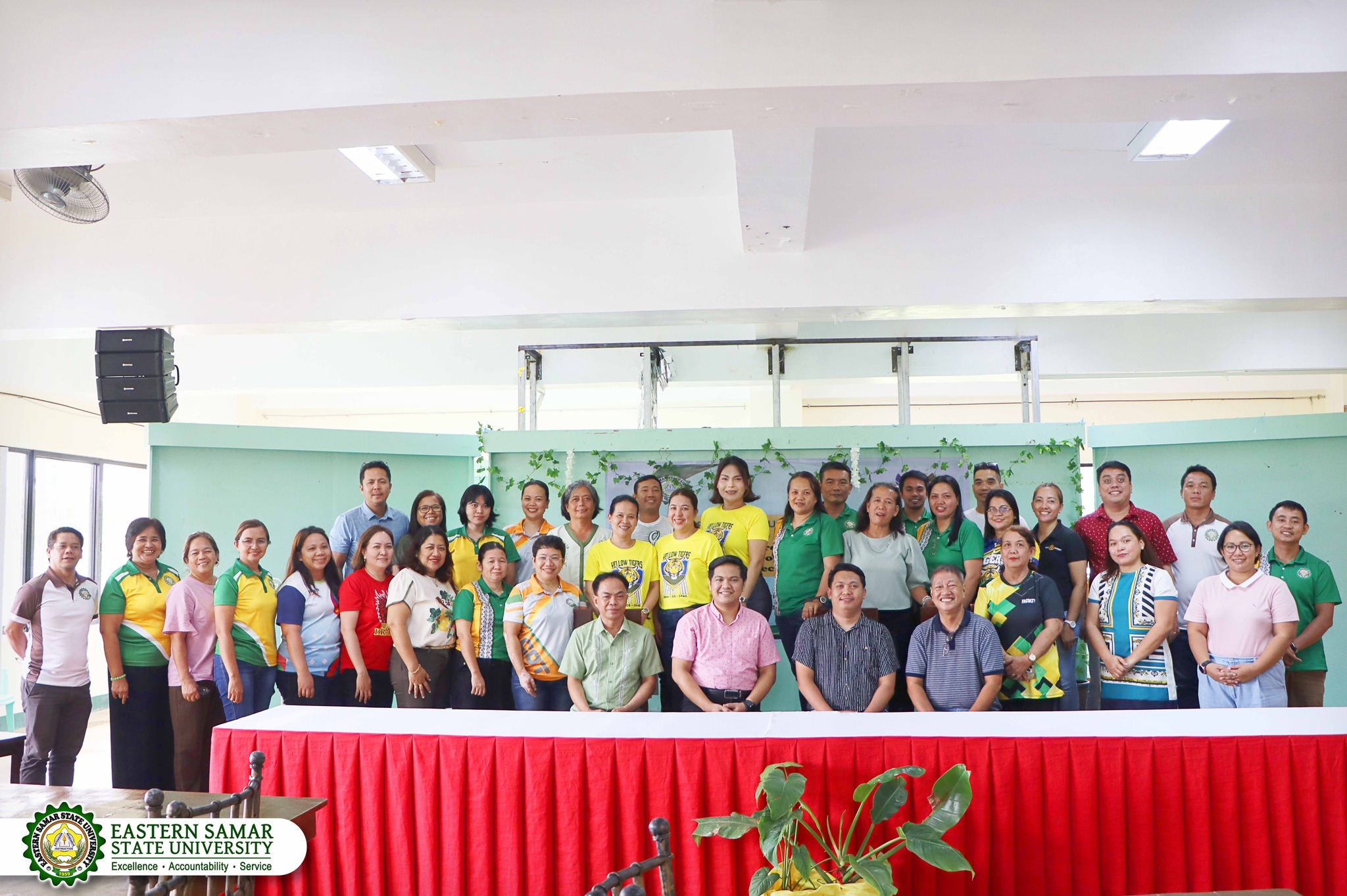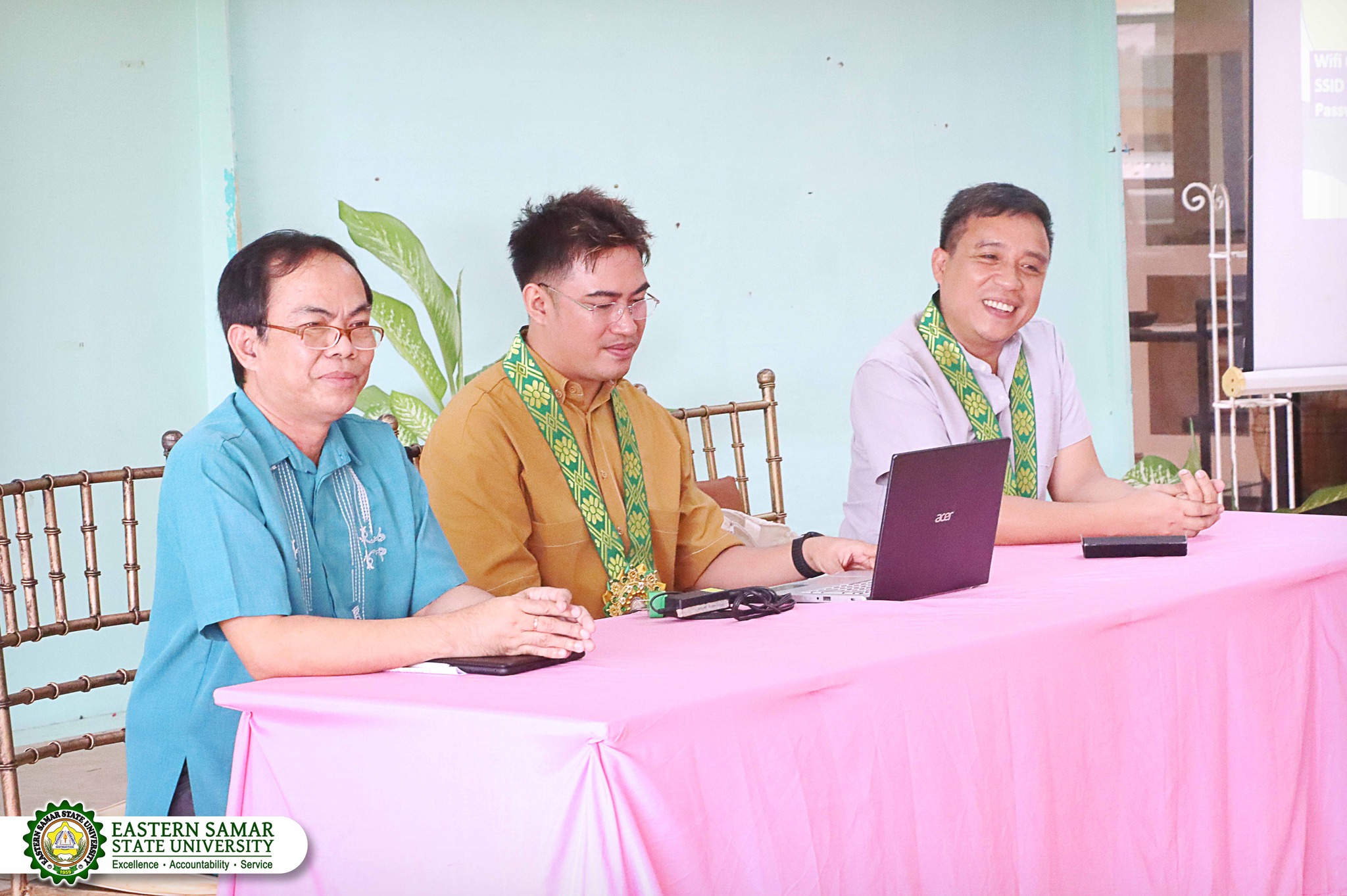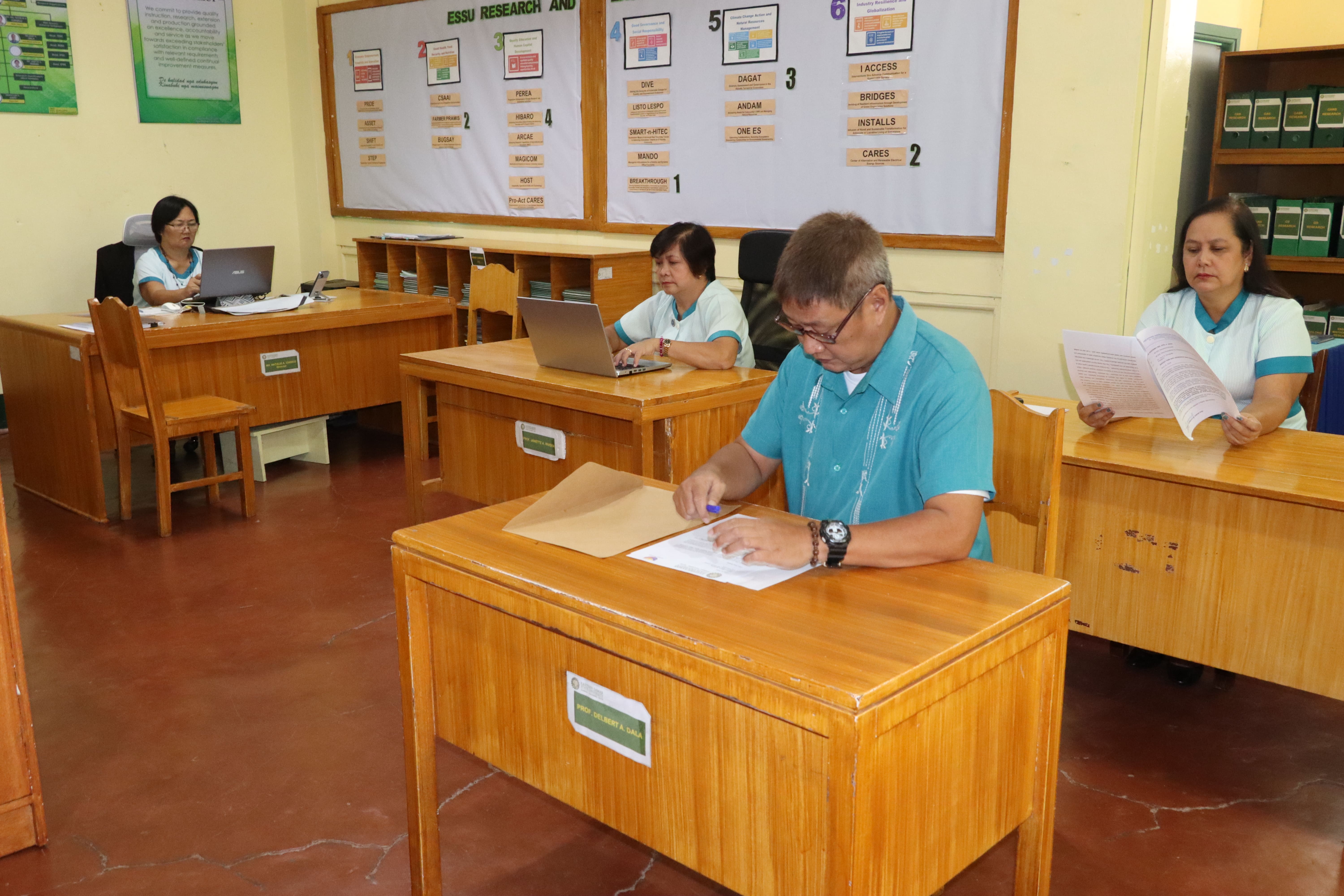
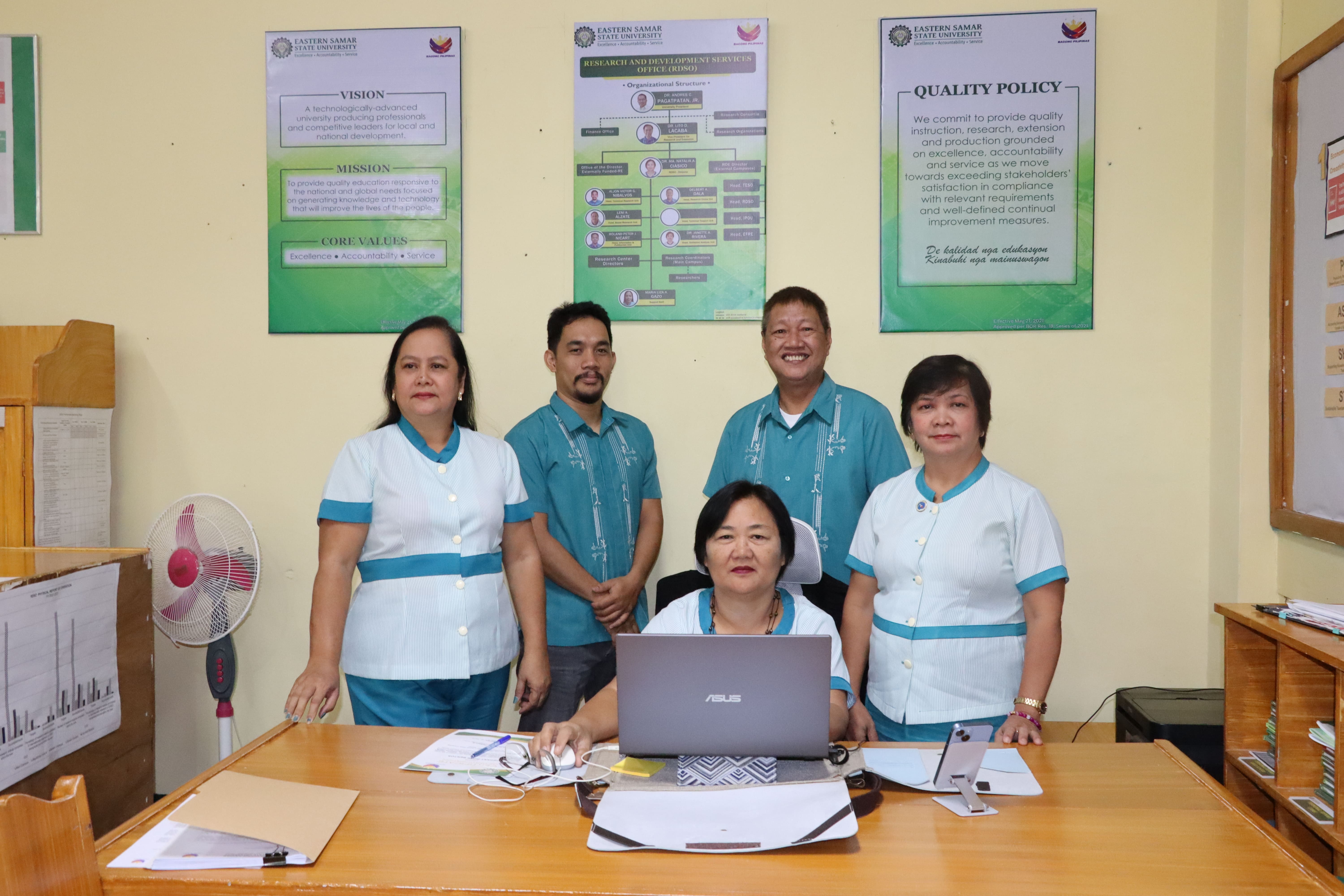

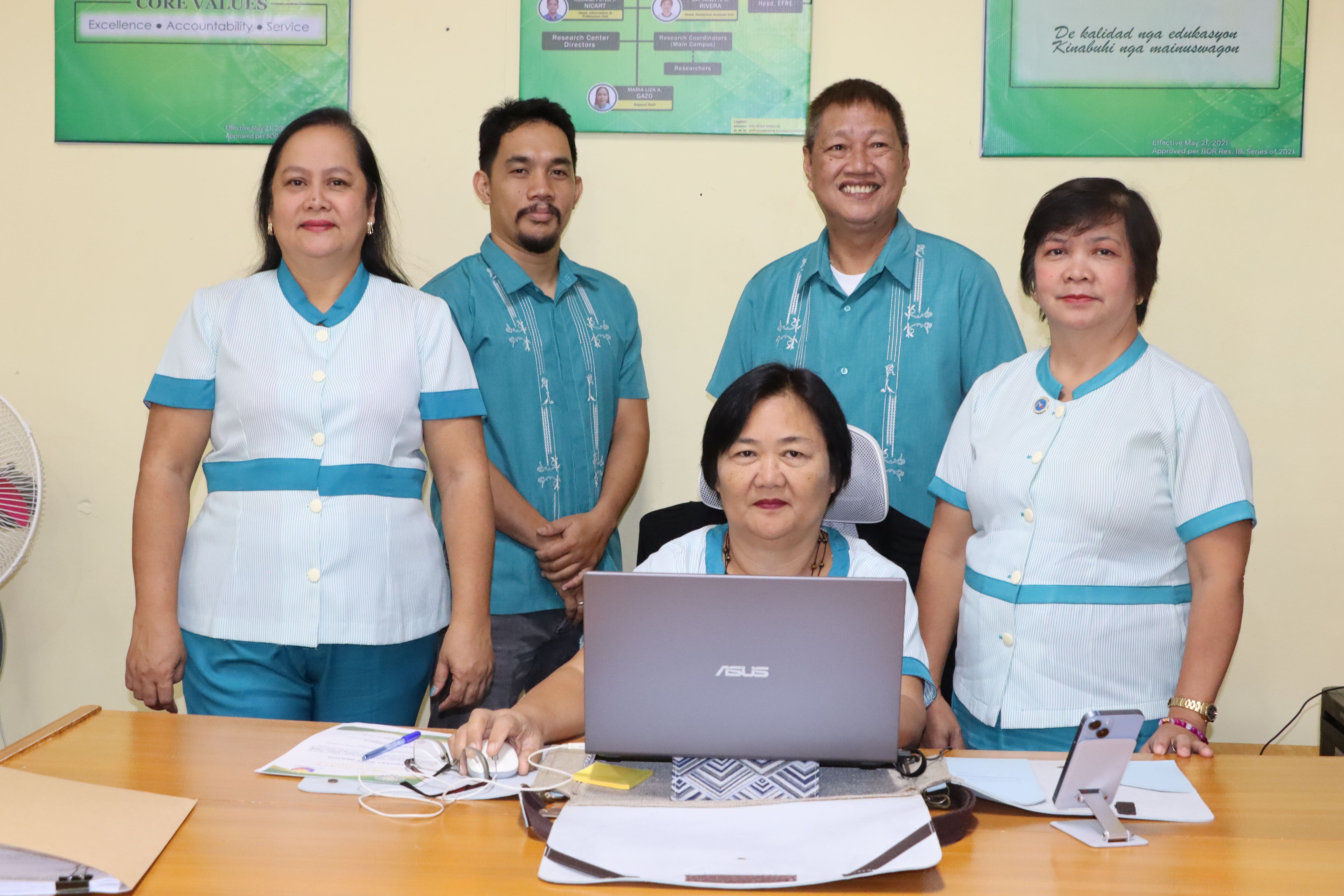
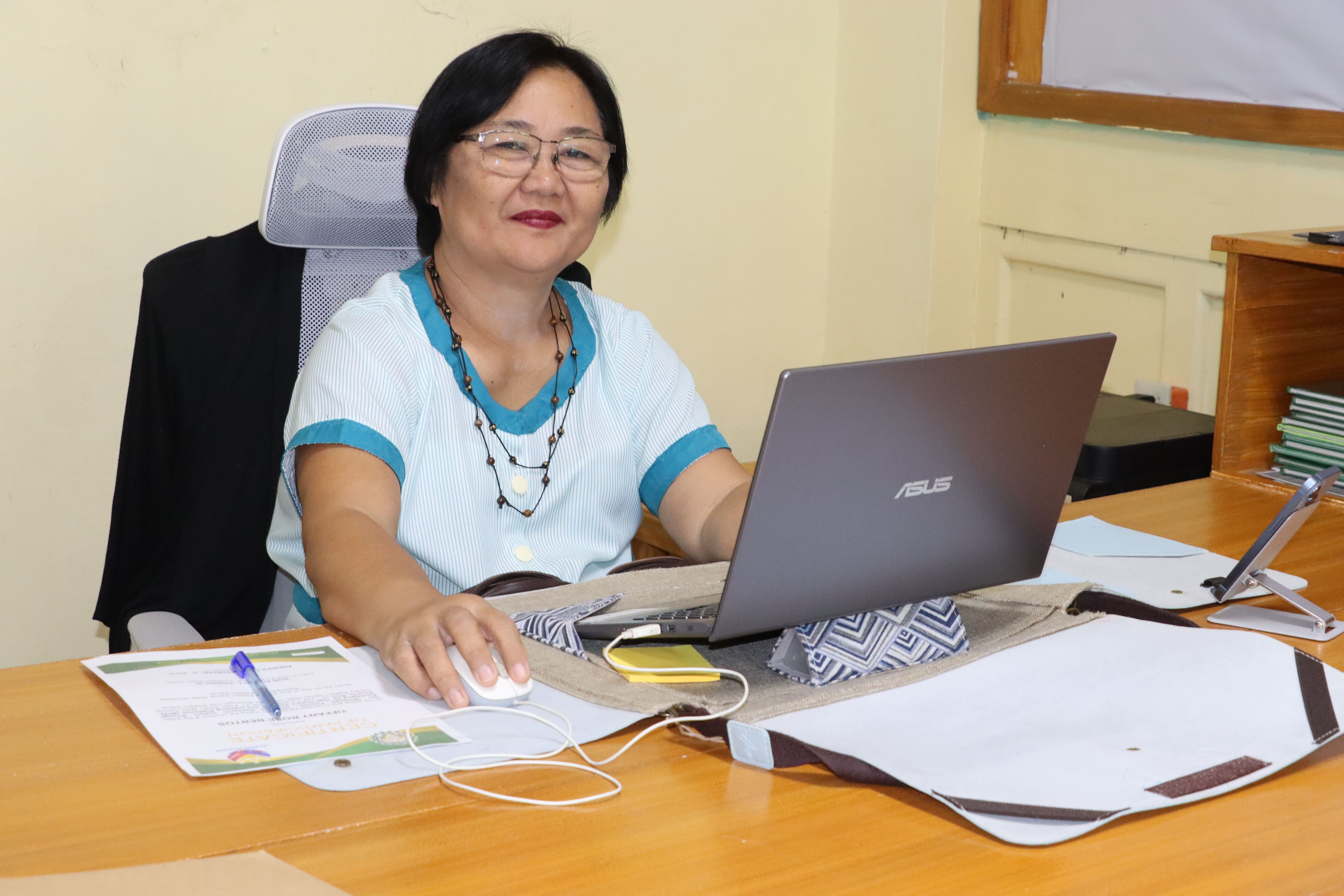
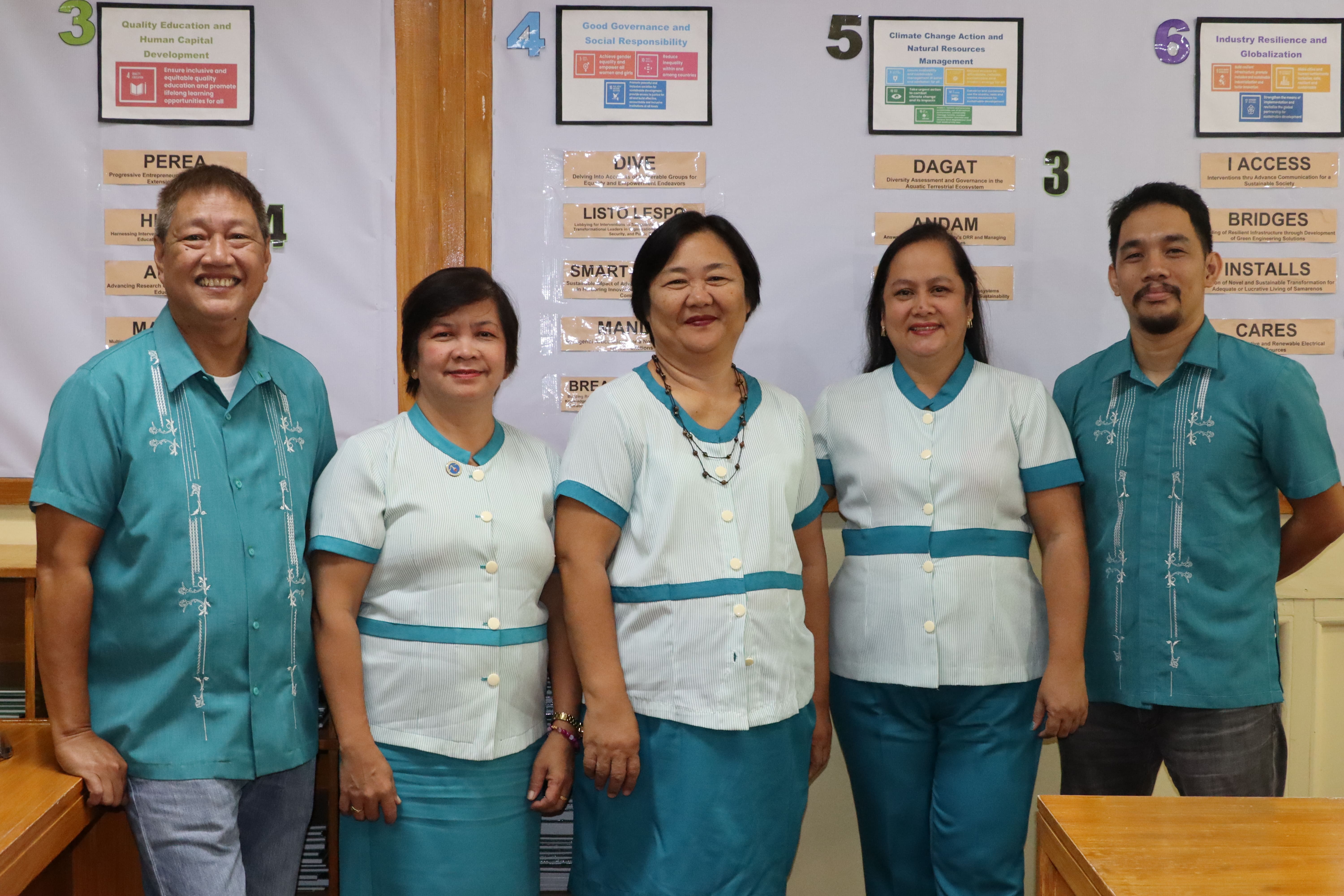
Goals and Objectives
The Eastern Samar State University Research and Development Services Office (ESSU-RDSO) commits to support research efforts through an environment that stimulates and challenges faculty researchers in the conduct of high impact and globally-competitive research endeavors. ESSU shall endeavor to achieve the following goals:
- institute relevant and responsive research programs
- enhanced RDSO productivity among colleges/campuses
- improved RDSO facilities and capability of RDSO actors
The Research and Development Services Office (RDSO) seeks to:
- To achieve 100% to 115% of the agency performance targets in RDSO of the NEP and General Appropriations Act through refined MSE system.
- To establish and/or update yearly the Research Management Information System modules in RDSO as input to planning;
- To regularly publish/disseminate RDSO outputs (print and e-media)
- To achieve 100% to 115% performance metrics indexed to the requirements of SUC Levelling, AACCUP, and ISO 9001:2015 standards.
- To establish and maintain partnership or linkages with research consortia/network and community service-oriented agencies; and
- To upgrade manpower (20% of plantilla RDSO actors) and material resources (equipment and facilities) to complement RDSO undertakings.
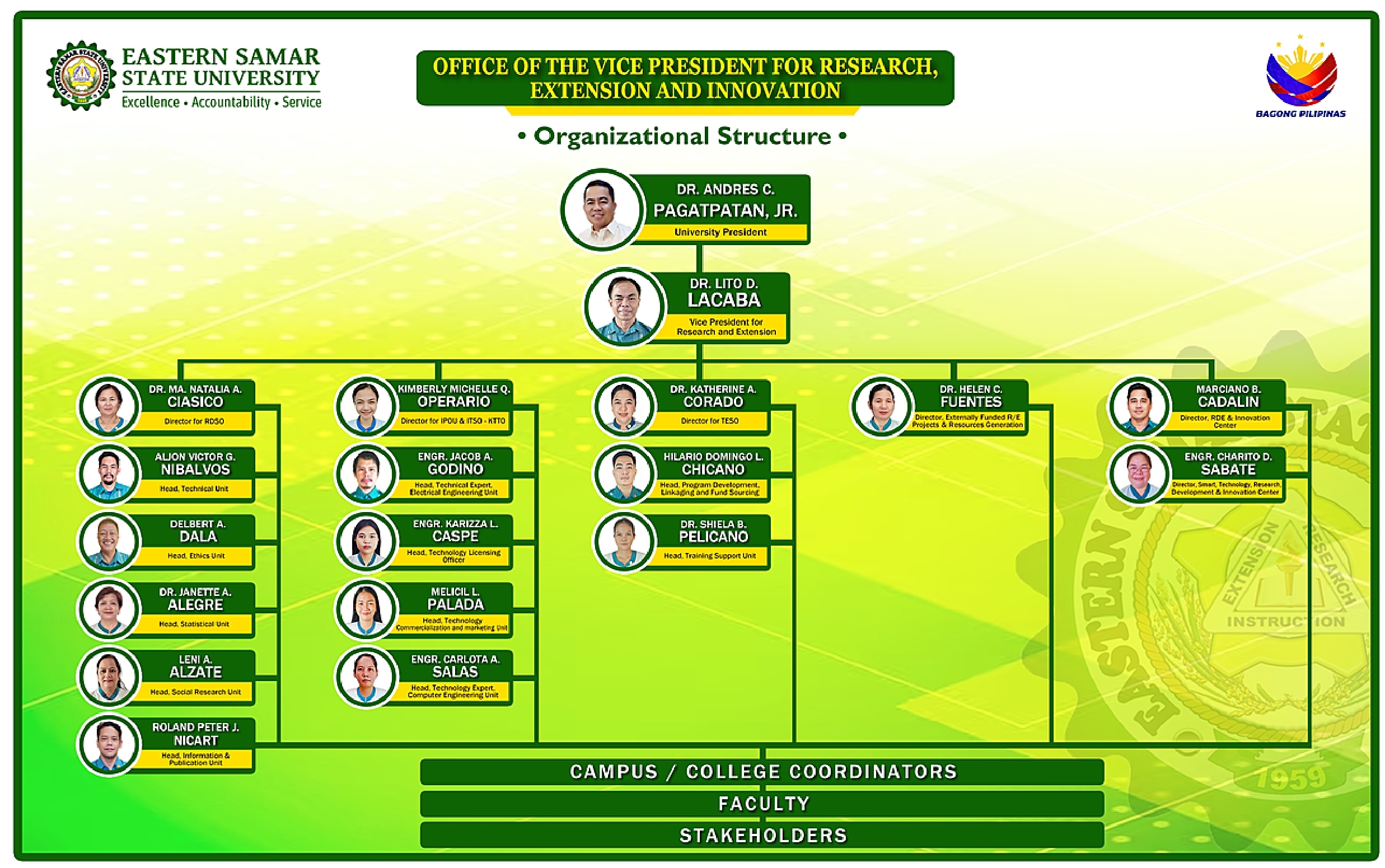
News and Announcements
The Quality Assurance and Accreditation Center (QAAC) exerts its final push in the cascading and data consolidation for the University's application for the QS Stars University Ratings by gathering all the stakeholders at the Main Campus yesterday, October 1, 2024, at the Teatro Ibabawnon. ...
Closing the third quarter of the current academic year on a high note, the Research and Development Services Office (RDSO) completed a two-day internal review of proposed and completed researches by faculty members on September 26 & 27, 2024, at the third floor Administration Building and SMART IT...
Unwavering in the fulfillment of their targets, ESSU's Research Development Services Office (RDSO) carries out another workshop on Capability Building on Futures Thinking and Foresight of the University, with the theme "Charting Futures: Designing Emerging Research Projects in Science and Technolo...
The Research and Development Services Office (RDSO) held a 2-Day Scientific Paper Presentation Workshop for faculty researchers across all campuses at the 2nd floor of the Central Library, ESSU Main Campus, on August 29-30, 2024. Serving as the resource speakers were professors B...

